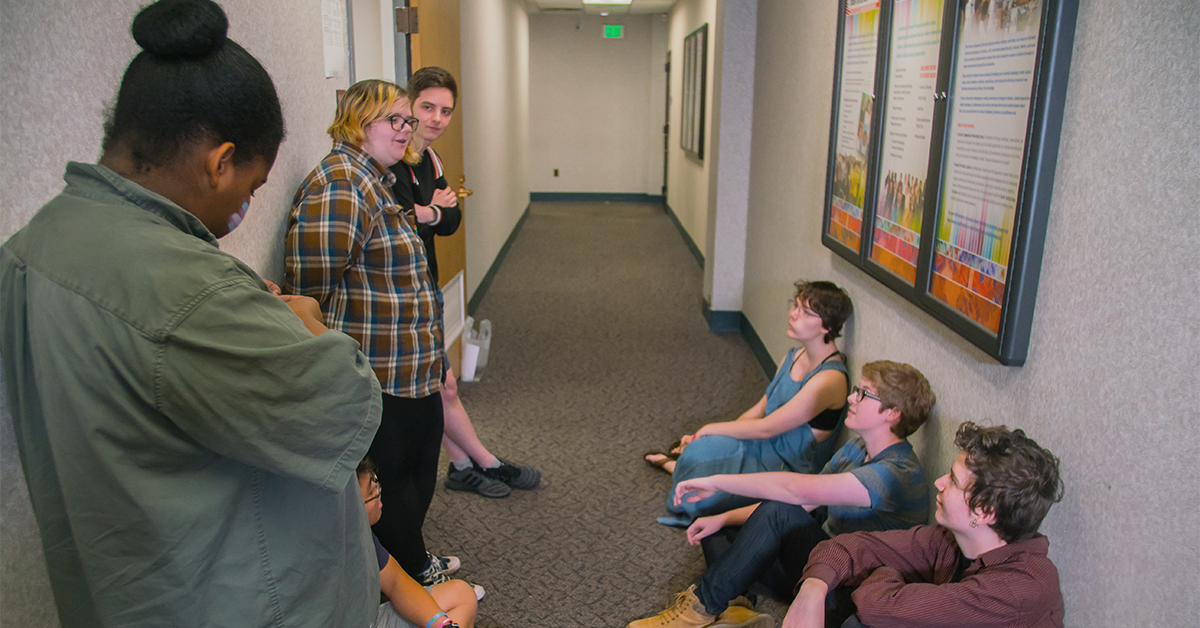Be an Ally, Not a Bystander

Name-calling and bullying are problems that everyone must help to solve. It may not be your fault that some students bully, but if you ignore it, laugh at it, or do nothing in response to bullying that you witness, you may be a part of the problem. Being an ally or a friend to someone who is being picked on may feel uncomfortable or scary, but there are safe ways in which we can all “Take a Stand and Lend a Hand.”
WHAT DO YOU DO WHEN YOU SEE SOMEONE BEING BULLIED AT SCHOOL?
Ask yourself, “Is it my job to help?” Think about how YOU might feel if the bullying was happening to you. You and other students can lend a hand, even when you aren’t close friends with the people being bullied. Your school will be a better place if you help stop bullying. And making your school a better place is EVERYONE’S job!
WHAT CAN I DO?
Lots of things! Think about what may work for you:
- Don’t just stand there...SAY SOMETHING!
- People who bully may think they’re being funny or “cool.” If you feel safe, tell the person to STOP the bullying behavior. Say you don’t like it and that it isn’t funny.
- DON’T BULLY BACK! It won’t help if you use mean names or actions. And it could make things worse.
BUT WHAT IF I DON’T FEEL SAFE TELLING STUDENTS WHO BULLY TO STOP?
That’s OK. No one should put himself or herself in an unsafe situation. How ELSE can you lend a hand when bullying happens?
- Say kind words to the person who is being bullied, such as “I’m sorry about what happened,” and “I don’t like it!” Help them understand that it’s not their fault. Be a friend. Invite that student to do things with you, like sitting together at lunch or working together on a project. EVERYONE NEEDS A FRIEND!
- Tell that student to talk to someone about what happened. Offer to help by going along.
- Pay attention to the other students who see the bullying. (These people are called, “bystanders.”) Are any of them laughing, or joining in with the bullying? These people are part of the problem.
- Let those bystanders know that they’re not helping! DON’T be one of them!
- Tell an adult. (This is IMPORTANT!!) Chances are, the person who is being bullied needs help from an adult. AND the student who is doing the bullying probably does, too. Often, the bullying does not get reported. Think about who you could tell in your school—a teacher, counselor, cafeteria or playground aid, principal, bus driver, or other adults you feel comfortable telling. If you need help telling, take a friend along.
WHY DON’T SOME STUDENTS TELL WHEN THEY SEE BULLYING?
They may not want others to think they are “tattling.” They may be afraid that the students who bully will pick on them next. They may think their friends will make fun of them for trying to help. Telling is very important! Reporting that someone is getting bullied or hurt in some other way is NOT “tattling.” Adults at school can help. Ask them to help keep you safe after telling. Explain to your friends that bullying is NOT fair and encourage them to join in helping!
WHAT IF THE BULLYING DOESN’T HAPPEN AT SCHOOL?
If there is an adult around, report the bullying to an adult (your youth group leader, sports coach, etc.) No matter where the bullying happens, you should talk to your parents about bullying that you see or know about. Ask them for their ideas about how to help. We ALL must do our part! People who are bullied deserve to feel safe and welcome at school and in their neighborhoods. Everyone does!
This fact sheet reprinted with permission from Take a Stand, Lend a Hand, Stop Bullying Now, a project of the Health, Resources and Services Administration of the U.S. Department of Health and Human Services at http://www.stopbullyingnow.org
